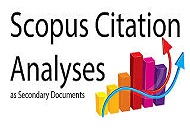Peningkatkan Hasil Belajar Siswa pada Mata Pelajaran IPS dengan Menggunakan Metode Cooperative Integrated Reading and Composition (CIRC) di Kelas III MI NW Taman Pagesangan Mataram
DOI:
https://doi.org/10.33394/jk.v5i1.1391Keywords:
Learning Outcomes, Social Studies, CIRC MethodAbstract
The aim of this study was to know the improvement of students learning outcomes in Social Studies subject using Cooperative Integrated Reading and Composition (CIRC) method in Class III of MI NW Taman Pagesangan Mataram. The research method used was Classroom Action Research. This research was carried out in MI NW Taman Pagesangan and used 23 students as subjects of the research. Instruments of data collection used observation sheet, test, and documentation. Data analysis technique used descriptive qualitative and quantitative analysis technique by using the completeness test formula. The result of this study indicated that the application of Cooperative Integrated Reading and Composition method could improve Social Studies learning outcomes in class III of MI NW Taman Pagesangan. This was in accordance with the results of tests that had showed improvement on students learning outcomes from the first cycle test to the second cycle test. The students’ average test score of the first cycle was 80 and the students’ average test score of the second cycle test increased to 85. The completeness Classical score also experienced an increase from cycle I to cycle II, from 82.60% up to 91.30%.
References
Andi Halimah. (2014) “Metode Cooperative Integrated Reading And Composition (CIRC) Dalam Pembelajaran Membaca Dan Menulis di SD/MIâ€, Kalam Cendikia, Vol. 1, Nomer 1 Juni 2014.
Arikunto, Suharsimi. (2017). Penelitian Tindakan Kelas. Jakarta: PT. Bumi Aksara.
Aqib Zainal dan Siti Jaiyaroh. 2011. Penelitian Tindakan Kelas untuk SD, SLB, dan TK. Bandung: CV. Yrama Widya.
Depdiknas. (2006). Peraturan Menteri Pendidikan Nasional Nomor 22 Tahun 2006 Tentang Standar Isi Untuk Satuan Pendidikan Dasar Dan Menengah Dan Peraturan Menteri Pendidikan Nasional Nomor 23 Tahun 2006 Tentang Standar Kompetensi Lulusan Untuk Satuan Pendidikan Dasar Dan Menengah. Jakarta: Depdikanas.
Djamarah, Syaiful Bahri dan Aswan Zain. (2013). Strategi Belajar Mengajar. Jakarta: Rineka Cipta.
Fathurrahman, Pupuh & Sobry Sutikno. (2014). Strategi Belajar dan Mengajar Bandung: PT. Refika Aditama.
Gunawan, Rudy. (2013). Pendidikan IPS Filosofi, Konsep, dan Aplikasi. Bandung; Alfabeta.
Huda, Miftahul. (2013). Model-model pengajaran dan pembelajaran. Yogyakarta: Pustaka Pelajar.
Majid, Abdul. (2016). Strategi Pembelajaran, Bandung: PT Remaja Rosdakarya.
Purwanto. (2014). Evaluasi Hasil Belajar.Yoyakarta: Pustaka Pelajar.
Purwanto Ngalim. (2004). Prinsip-prinsip dan Teknik Evaluasi Pengajaran. Bandung: PT Remaja Rosdakarya.
Rusman. (2015). Pembelajaran Tematik Terpadu Teori Praktik dan Penilaian. Jakarta: PT Raja Grafindo Persada.
Sudjana, Nana. (2011). Penilaian hasil Proses Belajar Mengajar. Bandung: Remaja Rosdakarya.
Suprijono, Agus. (2009). Cooperative Learning. Yogyakarta: Pustaka Pelajar.
Susanto, Ahmad. (2013). Teori Belajar dan Pembelajaran di Sekolah Dasar. Jakarta: Prenamedia Group.
Trianto. (2014). Model Pembelajaran Terpadu. Jakarta: PT Bumi Aksara.
Uzer, Usman. (2001). Menjadi Guru Profesional. Bandung: Remaja Rosda Karya.
Downloads
Published
How to Cite
Issue
Section
Citation Check
License
License and Publishing AgreementIn submitting the manuscript to the journal, the authors certify that:
- They are authorized by their co-authors to enter into these arrangements.
- The work described has not been formally published before, except in the form of an abstract or as part of a published lecture, review, thesis, or overlay journal.
- That it is not under consideration for publication elsewhere,
- That its publication has been approved by all the author(s) and by the responsible authorities – tacitly or explicitly – of the institutes where the work has been carried out.
- They secure the right to reproduce any material that has already been published or copyrighted elsewhere.
- They agree to the following license and publishing agreement.
Authors who publish with JK agree to the following terms:
- Authors retain copyright and grant the journal right of first publication with the work simultaneously licensed under a Creative Commons Attribution License (CC BY-SA 4.0) that allows others to share the work with an acknowledgment of the work's authorship and initial publication in this journal.Â
- Authors are able to enter into separate, additional contractual arrangements for the non-exclusive distribution of the journal's published version of the work (e.g., post it to an institutional repository or publish it in a book), with an acknowledgment of its initial publication in this journal.
- Authors are permitted and encouraged to post their work online (e.g., in institutional repositories or on their website) prior to and during the submission process, as it can lead to productive exchanges, as well as earlier and greater citation of published work.
- Open Data Commons Attribution License, http://www.opendatacommons.org/licenses/by/1.0/ (default)

This work is licensed under a Creative Commons Attribution-ShareAlike 4.0 International License.








